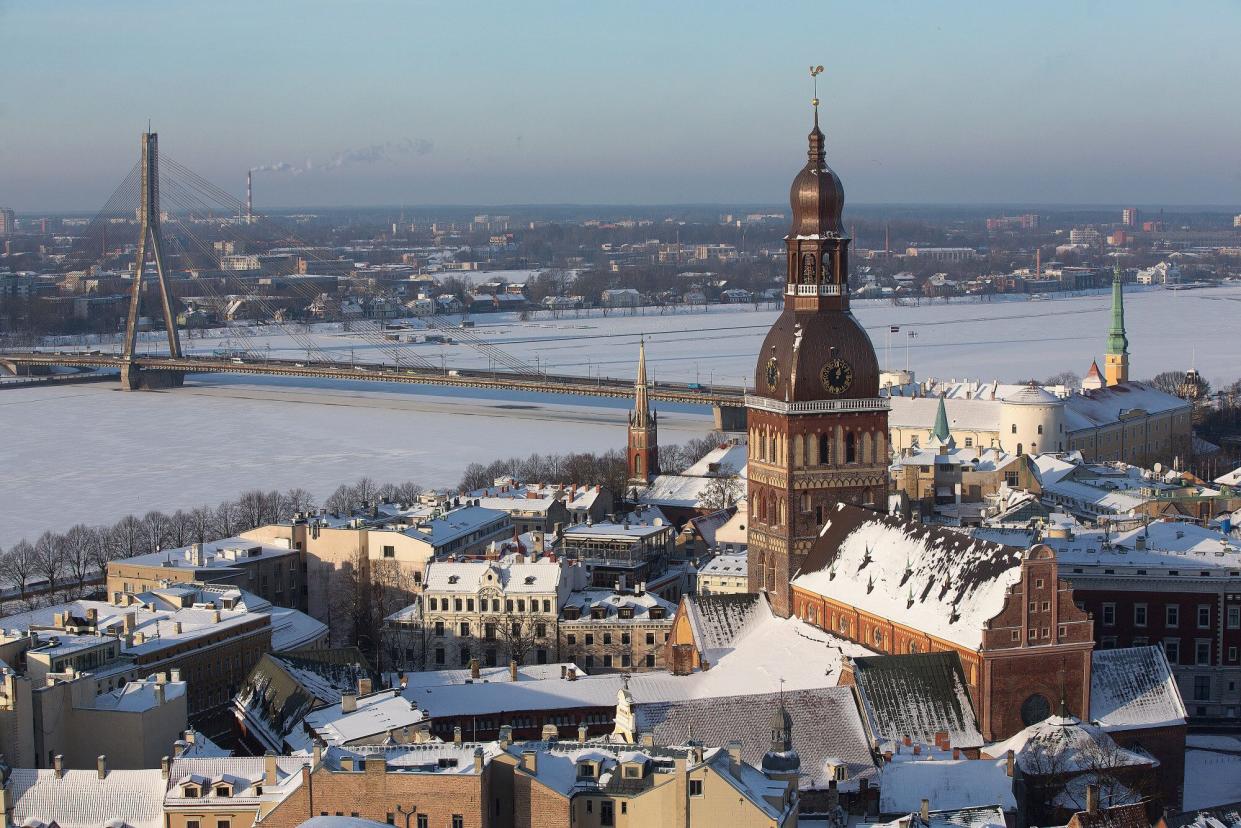Latvia Deploys Finance Tools to Fight Russian Sanctions Evasion

(Bloomberg) -- Latvia wants to improve the enforcement of European Union sanctions against Russia by deploying the tools it’s used to stamp out illicit financing.
Most Read from Bloomberg
Saudis Scale Back Ambition for $1.5 Trillion Desert Project Neom
Mark Zuckerberg’s Wealth Exceeds Elon Musk’s for the First Time Since 2020
Iran Tells US to Step Aside as It Readies Response to Israel
The EU’s Baltic members have been among the most aggressive in criticizing Vladimir Putin’s invasion of Ukraine. But they’ve struggled to police a flow of trade from the rest of the bloc to countries in central Asia — with goods ultimately ending up in Russia to feed the Kremlin’s war machine.
That task will now fall to Latvia’s Financial Intelligence Unit, whose mandate will expand from probing financial crime to controlling trade sanctions. The agency will freeze assets belonging to sanctioned individuals, create pools of sanctions data, publish lists of frozen assets and maintain a public search engine of entities and people facing EU penalties.
“The tools that were introduced in the financial sector, the reforms the financial sector reform brought, they can be also used for properly implementing sanctions,” Paulis Iljenkovs, the FIU’s deputy director, said in an interview.
The FIU was given new tools after a series of financial scandals, including the demise of Latvia’s second-biggest bank, which the US Treasury accused of money laundering in 2018. Once a skeleton crew in Riga, the enforcer scaled up, adding staff and expertise in an effort clean up the banking sector.
That success has prompted the government to hand it the sanctions portfolio, as the EU prepares its 14th package of measures against Russia since the invasion began over two years ago. The penalties have cost Russia about $400 billion in lost income so far, according to EU sanctions envoy David O’Sullivan.
Shutting Trade
Still, sanctioned goods from Europe are making their way into Russia, often by way of third countries that either never receive them or redirect them. Almost a quarter of €450 million ($488 million) of so-called high priority items that reached Russia from the bloc in the first nine months of 2023 was shipped directly from Europe.
The Baltic nations occupy one of the most sensitive positions in the EU, with ports, rail and highway links making their territory a natural stopping place for goods trying to find a way into Russia. The FIU deputy directory said investigations have primarily looked into those guiding the traffic outside the country.
“The majority of criminal proceedings that have been initiated by our tax and customs police are not against Latvian companies, they’re against other companies registered in the EU that use Latvia as a transit country,” Iljenkovs said.
Recent focus has also been on calls to ban the transit of Russian grain and manganese ore, an element that Russia may be using in production of military goods.
That may eventually raise the prospect of Latvia shutting the trade altogether. A halt to exports would cost the economy about two percentage points of output, central bank Governor Martins Kazaks has said.
“That would mean no growth or a shallow recession — not painless, but not crazy either,” Kazaks said on social platform X last month. “It is necessary to leave the market of the aggressor country.”
Most Read from Bloomberg Businessweek
Everyone Is Rich, No One Is Happy. The Pro Golf Drama Is Back
How Bluey Became a $2 Billion Smash Hit—With an Uncertain Future
©2024 Bloomberg L.P.


